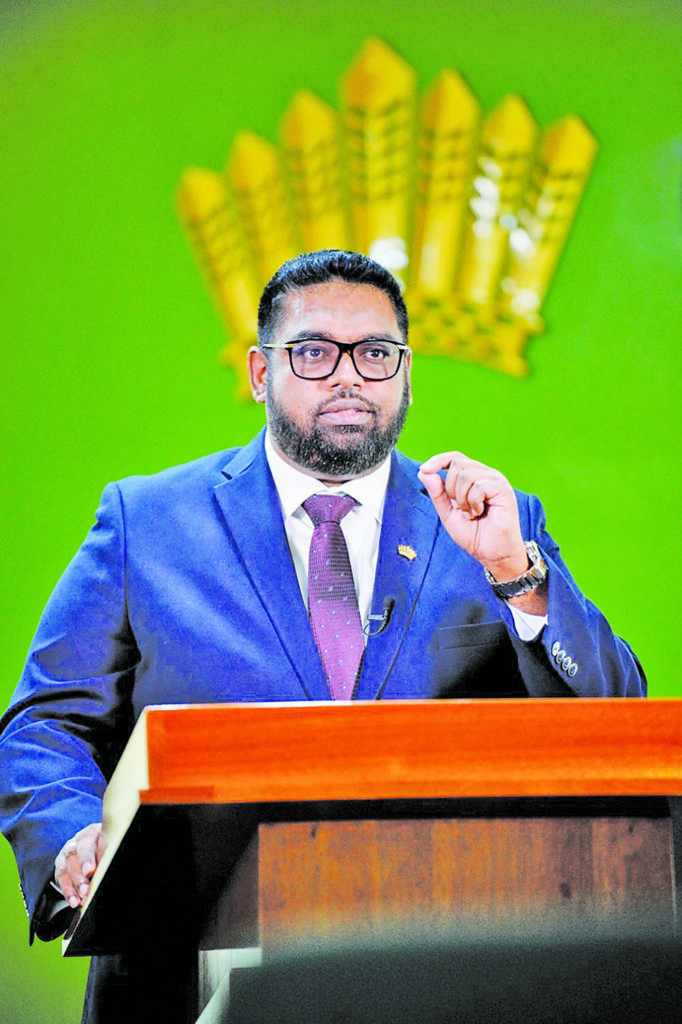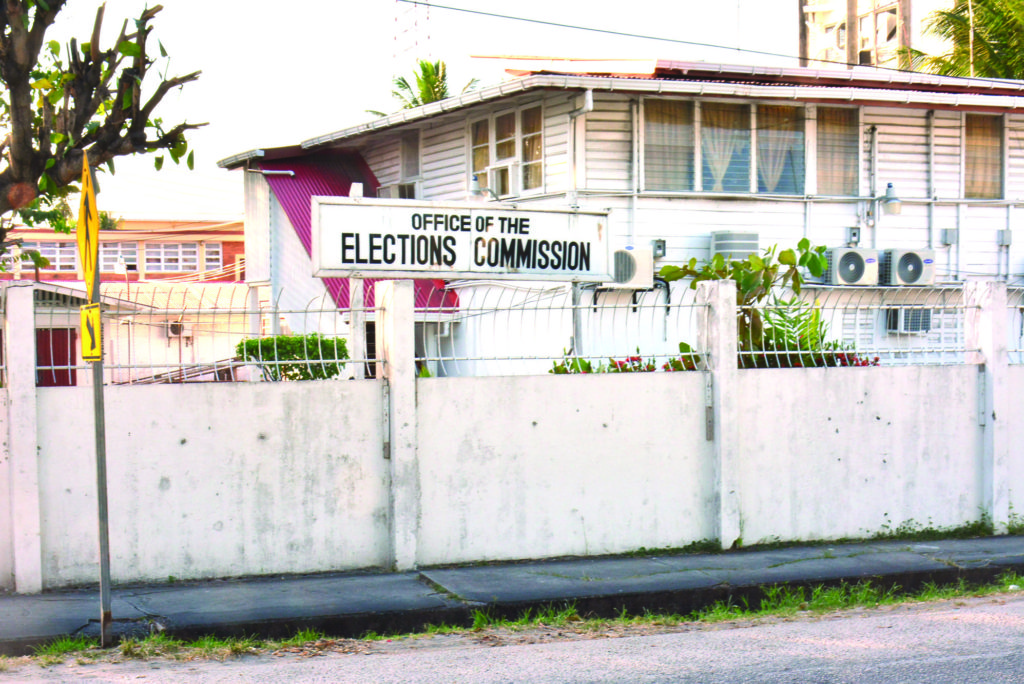…constitutional, electoral reforms high on agenda – President Ali
 President Dr Irfaan Ali has reassured that constitutional and electoral reforms are still top priorities for his Administration, noting that work is already ongoing on both fronts.
President Dr Irfaan Ali has reassured that constitutional and electoral reforms are still top priorities for his Administration, noting that work is already ongoing on both fronts.
During his press conference last week, the Head of State in response to a question from Guyana Times contended that those reforms were “indeed critical”.
With regard to constitutional reform, he noted that the process has commenced.
“I’ve asked the [Attorney General] to move aggressively on this, so that the public consultation can commence on constitutional reform. Constitutional reform must come from the people and as soon as that process commences, it will take us down the journey of constitutional reform,” he stated.
Similarly, President Ali pointed out that in relation to electoral reform, much work was also currently ongoing.
“A lot of international agencies are in discussions with both GECOM (Guyana Elections Commission) and the different stakeholders. But more importantly, we as a people have to start the discussion on electoral reform, but that is high on the agenda. Also important on that agenda is the strengthening of GECOM and the internal reform of GECOM itself. So that we can have the best professionals in there managing and running an election,” the President posited.
The need for constitutional, and more so electoral, reform was underscored following last year’s March 2 General and Regional Elections, which led to a five-month tumultuous impasse.
 There were concerted efforts by the former governing A Partnership for National Unity/Alliance For Change (APNU/AFC) and some GECOM officials to undermine democracy after the elections were held.
There were concerted efforts by the former governing A Partnership for National Unity/Alliance For Change (APNU/AFC) and some GECOM officials to undermine democracy after the elections were held.
A number of ploys were involved, from GECOM officials inflating numbers to favour the former ruling party to supporters of the APNU/AFC using the courts to drag out the process after the elections were held.
However, a 33-day recount showed that the People’s Progressive Party/Civic (PPP/C) won the elections, but it took the firmness of local and regional courts; the resilience of GECOM Chair, Retired Justice Claudette Singh and threats of sanctions from the international community led by the United States before former President David Granger finally stepped aside and allowed President Ali to be sworn in.
From the inception of his Administration, Dr Ali had stressed that they first have to address the issues that caused the prolonged delays following last year’s polls before going ahead with preparations for another elections.
This was a recommendation made by all of the foreign electoral observation bodies that had monitored the 2020 elections as well as many of Guyana’s bilateral partners who saw first-hand the unfolding of events.
Among these were the United States, which has since committed to assisting Guyana in strengthening its electoral processes.
To this end, the US Department of State has recently announced that it was supporting an 18-month project to strengthen the capacity of GECOM and the Attorney General’s Chambers to lay the groundwork as it relates to electoral reform.
The project, which will be implemented by the International Republican Institute (IRI), will also see efforts undertaken to encourage local civil society organisations (CSOs) to advocate for electoral reform in accordance with regional and international standards.
According to the US Embassy in Georgetown, through this project, GECOM, the AG Chambers, and civil society bodies will collaboratively consolidate and improve local electoral and constitutional law knowledge, establish an internal timeline to address electoral reform, improve collaboration for joint advocacy actions, and prioritise electoral and constitutional law issues while promoting reform through citizen engagement.
The project is part of ongoing support activities by the US Government to strengthen the capacity of Guyana’s governance for the benefit of all Guyanese.
This is especially significant given the critical role the US played in defending Guyana’s democracy last year. In fact, the US was the only country to impose visa restrictions against those persons who were responsible for or complicit in undermining Guyana’s democracy following the March 2 elections.
Since, then Guyana has been offered assistance, mostly technical, from several other bilateral partners – including Canada and India as well as various international organisations – to aid in the electoral reform process.
Meanwhile, several GECOM officials and staff – including Chief Elections Officer (CEO) Keith Lowenfield; Deputy CEO Roxanne Myers and Region Four Returning Officer Clairmont Mingo – have since been charged for electoral fraud.
Additionally, People’s National Congress Reform (PNCR) Chairperson Volda Lawrence has been charged with conspiracy to commit fraud after she was the lone political party representative to sign the fraudulent declaration made by Mingo in which he inflated the figures in favour of the APNU/AFC coalition.
A national recount conducted showed that the PPP/C won the elections with 233, 336 votes – some 15,416 more votes than the 217,920 votes that the APNU/AFC secured.
Only last week, the Opposition coalition lost its lone surviving election petition that challenged the conduct and results of the March 2020 polls. Acting Chief Justice Roxane George, in dismissing the petition, ruled that nothing in the petition supported the claims of the petitioners as it related to irregularities during the elections.
Further, she found that there were no breaches or violations by GECOM that would make the elections a sham or travesty. (G8)
 President Dr Irfaan Ali has reassured that constitutional and electoral reforms are still top priorities for his Administration, noting that work is already ongoing on both fronts.
President Dr Irfaan Ali has reassured that constitutional and electoral reforms are still top priorities for his Administration, noting that work is already ongoing on both fronts. There were concerted efforts by the former governing A Partnership for National Unity/Alliance For Change (APNU/AFC) and some GECOM officials to undermine democracy after the elections were held.
There were concerted efforts by the former governing A Partnership for National Unity/Alliance For Change (APNU/AFC) and some GECOM officials to undermine democracy after the elections were held.